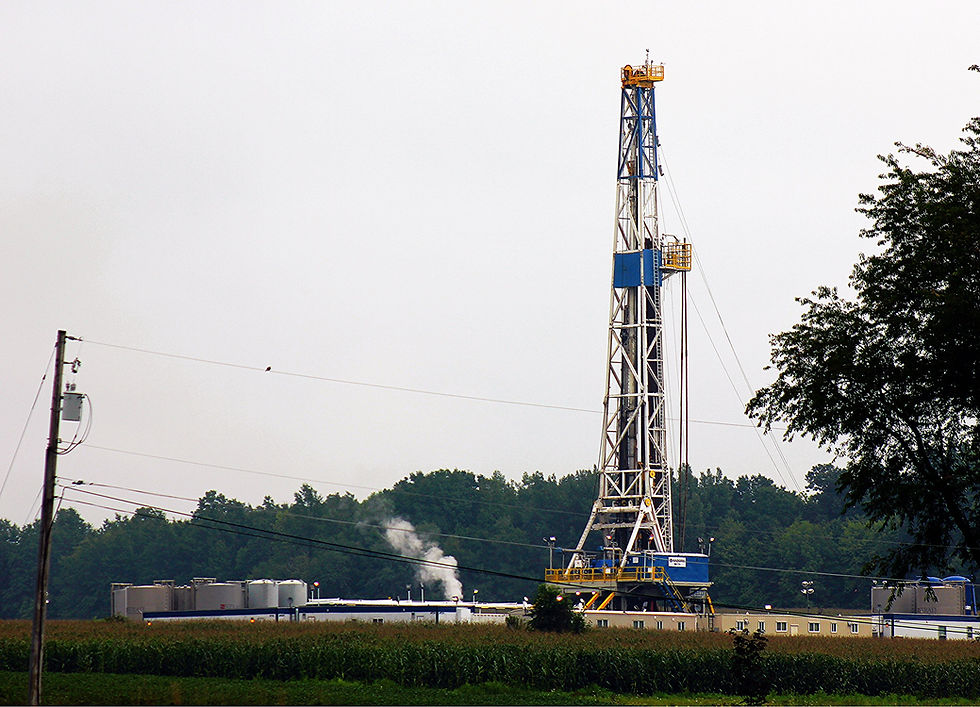We won’t stop the boats without tackling climate change
- May 12, 2025
- 4 min read
The Government’s new immigration white paper contains several welcome measures to tighten up visa rules and strengthen English language requirements. It is an attempt to respond to growing public concern about sky-high immigration levels, which polling finds to be the primary motivating factor for voters to back Reform UK. But despite the tough rhetoric, Keir Starmer’s package is unlikely to reduce migration sufficiently, in part because it fails to address what is driving migrants to leave their homes in the first place.

Climate change is one such ‘push factor’ for migrants. The Intergovernmental Panel on Climate Change (IPCC) has warned that climate change is increasing both the likelihood and the ferocity of extreme weather events such as floods, droughts and cyclones, in turn forcing people to leave their homes in search of safety. It also exacerbates existing drivers of migration, such as competition for natural resources or poor economic prospects.
Around 20 million people per year were displaced by weather-related extremes over the past decade. For example, a severe drought in the Horn of Africa in 2022 caused a devastating hit to food production in the region, and led to an estimated 3.3m people from Kenya, Somalia and Ethiopia fleeing their homes. Though attributing specific extreme weather events to climate change isn’t an exact science, the link between climate change and migratory flows is clear.
Tackling immigration must always begin with tougher border controls. But even with a well-policed border and limits on visas, the costs of maintaining this system will become increasingly expensive and unsustainable unless push factors like climate change are tackled at source. Moreover, strong borders do not help vulnerable people suffering the effects of climate change. That’s why, for the sake of delivering on the public’s priority of substantially lowering migration, the Government needs a plan to tackle climate migration and support people affected by climate change to live safely in their home countries.
This does not mean we should create a new category of ‘climate refugee’. It is important for preserving the communities, economies, and cultures of developing countries – let alone our own – that we do not create a new right for millions of extra people to come into the UK in response to weather-related extremes. While the UK has historically been a major contributor to greenhouse gas emissions, this does not mean accepting liability for the actions of previous generations.
Addressing climate migration requires firstly slowing and ultimately stopping climate change through reducing global greenhouse gas emissions to Net Zero. This is essential to keeping the scale of climate impacts manageable. And, given the UK’s limited individual role in current annual global greenhouse gas emissions – to which we contribute around just 1% – helping developing countries to decarbonise is essential.
Secondly, it requires supporting developing countries to adapt and become more resilient to climate change, thus reducing the likelihood of cross-border migration in response to extreme weather events and rising temperatures.
However, both strategies rely heavily on the effective deployment of international development funding known as climate finance. Climate finance is needed because the poorest countries lack the financial resources to invest in vital emissions reduction methods such as clean energy, or in nature-based solutions to adapt to climate change. The private sector is often unwilling to invest in this infrastructure due to high levels of political and legal risk, as well as the high cost of capital in less developed markets.
However, with government budgets for climate finance shrinking around the world in response to urgent new security threats, we have to spend existing funds better. We need more creative solutions, such as unlocking more finance from the balance sheets of multilateral development banks, ensuring government finance leverages many more multiples of private finance into emissions reduction projects, or greater use of government-backed infrastructure guarantees to de-risk investment for private capital.
There are also substantial geopolitical and security advantages to improving our climate finance offer. Western nations must finally deliver on their promises to establish a democratic alternative to the Chinese Belt and Road Initiative – a key vehicle for expanding Beijing’s economic influence and diplomatic reach across Asia, Africa and Europe. The G7’s Build Back Better World initiative was launched around COP26 to be exactly that, but lacked any serious financial backing.
While we have prevaricated, China has continued to finance green infrastructure across developing countries, buying influence, capturing supply chains and loading up poorer nations with crippling debts. If we want to avoid China locking in dominance over green industries and buying the geopolitical support of emerging economies, we need to be willing to match their investment in climate finance.
Climate finance can even bring benefits for conventional forms of migration control. Under Prime Minister Giorgia Meloni’s leadership, for example, Italy has sought to focus its climate finance on North African countries, linking aid to agreements to controls on illegal migration, while also directly addressing the climate change-related drivers of migration such as desertification and food and water insecurity. The UK can and should do the same.
The absence of a plan to address climate migration and other structural drivers of migration was far from the only omission in Starmer’s strategy. There was a lack of tangible and practical steps to reduce family and student visas, as well as a failure to countenance any kind of firm limit on overall numbers. But tackling climate migration could make an important contribution to a more comprehensive plan to lower immigration. It would add another politically salient argument for the Government’s Net Zero agenda. And the solutions – building more clean energy, improving food and water security and restoring nature – deliver many additional economic and security benefits beyond potentially limiting climate migration. Starmer’s next migration speech should rectify this.
First published by CapX. Sam Hall is Director of CEN.




Comments